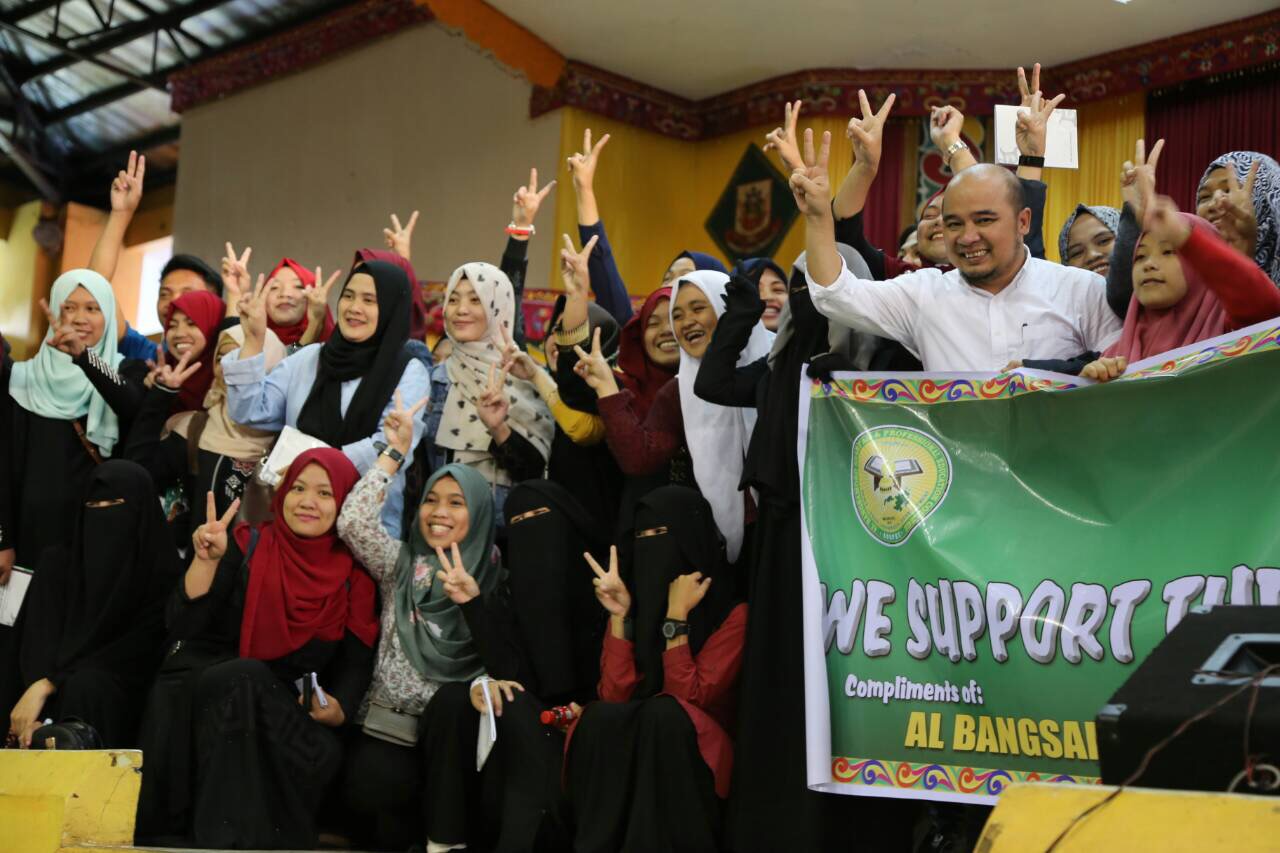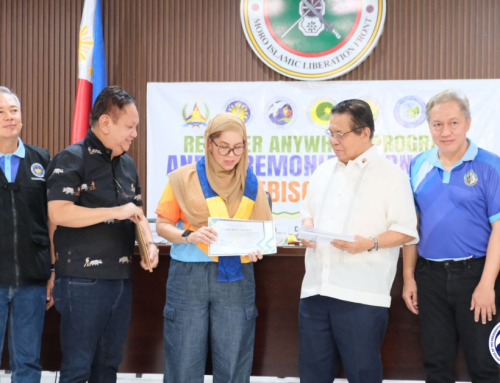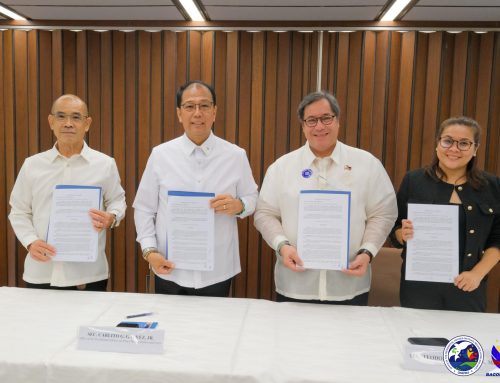MARAWI CITY, September 8, 2018 — Residents are hopeful the ratification of the Bangsamoro Organic Law (BOL) will help bring the needed rehabilitation and healing to this Islamic city.
Carrying banners printed with “YES” in bold letters, residents here, mostly students, declared their approval of the BOL inside the Dimaporo Gymnasium right inside the Mindanao State University (MSU) compound during a multi-stakeholder forum to educate the public of the salient points of the law on Friday afternoon.
The Commission on Elections (Comelec) had earlier said that the plebiscite will be on January 21, 2019.
Alimah Lacsaman, 22, a third-year AB History student of the Mindanao State University (MSU), said the crisis provided so many lessons on why there is a need to pursue peace in the Bangsamoro homeland.
“We endured 12 hours of traffic jams. We were stuck in the road as we hurriedly fled, along with hundreds of thousands of others. To make things worse, my sister was scheduled for her cesarean surgery operations that day,” Lacsaman said as she narrated the harrowing experienced of uncertainty when the fighting broke out in their city between government troopers and a radical group.
“I must admit that before I didn’t have any idea what the law was all about. But when I joined groups which are advocating for its passage, and when I began reading the essence of the law, I became 100 percent supportive of the BOL,” she said.
She said as a history student, she realized that the law grants political power to the Moro people who for centuries have been fighting to regain self-rule over their ancestral lands.
“History is the study of past, to understand the present, and to say something about the future,” she emphasized as she vowed to help campaign for the ratification of the BOL.
According to Dickson Hermoso, the Assistant Secretary for Peace and Security unit of the Office of the Presidential Adviser on the Peace Process (OPAPP) and a member of the Government Peace Implementing Panel, normalizing conflict areas in Mindanao is among the priorities of the law.
“I saw the ugliness of the conflict but I also saw the real solution. What we are doing now is the ultimate solution to achieve peace in Mindanao,” he said, referring to the collective efforts to campaign for the ratification of law.
Although the BOL is largely anchored on the Comprehensive Agreement on the Bangsamoro — a peace agreement between the government and the Moro Islamic Liberation Front (MILF) — it includes key provisions of all previous Bangsamoro peace agreements signed between the government and the Moro fronts.
“BOL is not only a legal instrument but also a social document that would address the decades-old armed conflict in the Bangsamoro, as well as the recognition of historical injustices committed against the Bangsamoro,” Hermoso said.
He said the passage of the BOL is “not the end of our work in attaining peace in Mindanao but it is a trigger for the Normalization Process as agreed by the government and the MILF.”
Normalization, he said, envisions conflict-affected communities to “return to conditions where they can achieve their desired quality of life, which includes the pursuit of sustainable livelihoods and political participation within a peaceful deliberate society.”
Hermoso appealed to the Bangsamoro people to ratify the BOL.
“As we prepare for the plebiscite, we call on all stakeholders… to watch over and safeguard the implementation and conclusion of the peace process in light of the full flourishing of our country’s stability, development, and nation-building,” he said.
Another third year student, 19-year-old Fairouz Rasul who is taking up BS agricultural education at MSU and an active member of the Coalition of Moro Youth Movement, Inc., said she has been supportive of the passage of a law that will grant genuine autonomy to the Moro people.
“I have been advocating the Bangsamoro peace process. There’s no other option but to pursue a peaceful settlement to the problem in the Bangsamoro,” she said.

Rasul, who lives less than a kilometer away from the main battle area in the city, said the trauma brought about by the armed conflict in Marawi should not happen again in Mindanao.
“We could see the actual bombings in the ground zero from our classroom windows. We couldn’t focus,” she recalled.
For Marjanie Mimbantas, a member of the MILF Peace Implementing Panel, the youth should be active in the peace process.
“Take it from me. I was just a grade six student when the peace talks started between the government and the MILF. And I never thought that one day I’ll be part of the panel,” he told the audience.
“Why am I telling you these? It is to give emphasis that the young ones will be the ones who will continue the peace process,” he said.
“The youngsters should be active in this campaign. This is for our future,” he added.
The forum on Friday here is among the series of forums that the government, the MILF, the Bangsamoro Transition Commission, and other partner agencies have scheduled until the plebiscite is held.
The event is also part of the celebration of National Peace Consciousness Month which OPAPP is spearheading. ###











